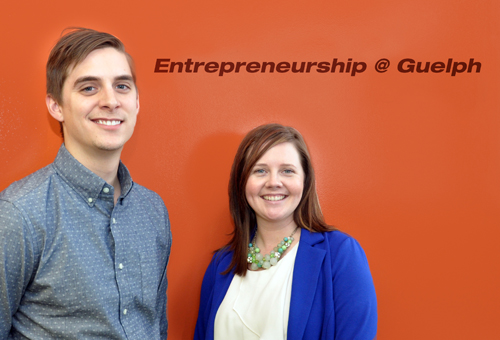Just as much as entrepreneurship is the lifestyle through which people can start businesses and earn money, entrepreneurship itself is a (big) business too. There’s plenty of money to be made if one convinces another that they can help.
Indeed, the number of institutions that have latched on to the bright idea of providing and selling services to help others find success in starting a business, has steadily risen over the past few years. One institution that seems to be leading the charge in creating programs to help entrepreneurs (partly, though not all the time paid for by student tuition rates) is academia.
It started with places like Ryerson University, with its Digital Media Zone (DMZ) and the University of Waterloo, with its VeloCity Garage.
Recently the University of Guelph continued the trend, formally launching The Hub. The Hub offers UofG students and alumni funding, dedicated office space and access to experienced entrepreneurs.
It’s a program within the university that requires an application and successful admittance process, and provides UofG family members with an $8,000 grant, mentors, business services, resources like workshops and office space.
The Hub is part of Guelph’s Co-operators Centre for Business and Social Entrepreneurship (CBaSE), of which student Ahren Brunow is assistant manager. He told UofG’s website that the students “get mentorship, guidance and funding to launch their business, which is an incredible opportunity for students with limited resources and networks.”
Brunow said he gained most of his entrepreneurial knowledge through textbooks. He currently runs two online businesses, in Art From Concentrate, which sells limited-edition prints by independent artists, and Bedroomer, which helps musicians produce and distribute their music.“I think the biggest thing for me is mentorship,” he told UofG. “I have made lots of mistakes myself because I’ve gone at it alone.”
Melanie Lang, CBaSE director and a professor in the Department of Marketing and Consumer Studies, told UofG that they “approach entrepreneurship not as a discipline but as a daily practice.” Moreover, according to Lang “everyone has to start somewhere, and we have the resources here to support you…we’re trying to embody entrepreneurship at Guelph.”
Like the VeloCity program at the University of Waterloo, only one member of eligible teams needs to be a student or alumni within the University of Guelph, while other members need not be. The Hub seeks to help students and alumni with an existing enterprise or an idea to progress through the initial stages of a start-up, particularly the discovery and validation stages. Participants work for four months at the Hub “discovering whether or not their enterprise is solving a meaningful problem and validating their enterprise by gauging interest through the exchange of money or attention from their target market.”
The $8,000 is a non-repayable grant, which means if a student’s venture fails, they’re not on the hook for the cash. For students it looks like a great opportunity that’s not available for just anyone. And compared to the stringent criteria required for a startup to be accepted into more traditional startup accelerators in Canada, it looks like this might be the easiest way to get $8,000 for a bright idea.
Of course the downside with institutionally-based mentorship programs, like government-funded or academia-led programs, is that the leadership isn’t always filled with those who’ve actually exited startups, or experienced real success. Most of those high-value mentors are usually already linked up with one of Canada’s traditional accelerators, like FounderFuel, Extreme Startups, GrowLab and more.
For The Hub, students must have a well-thought out but unproven idea to apply. The Hub stopped accepting applications for its current cohort more than two months ago, so keep up with the website for its next cohort, likely in six months.
Photos by uoguelph.ca



